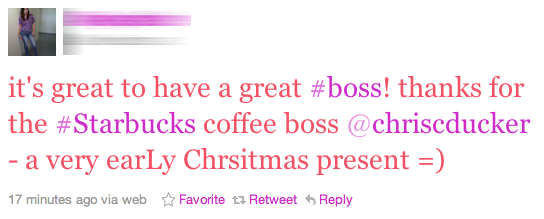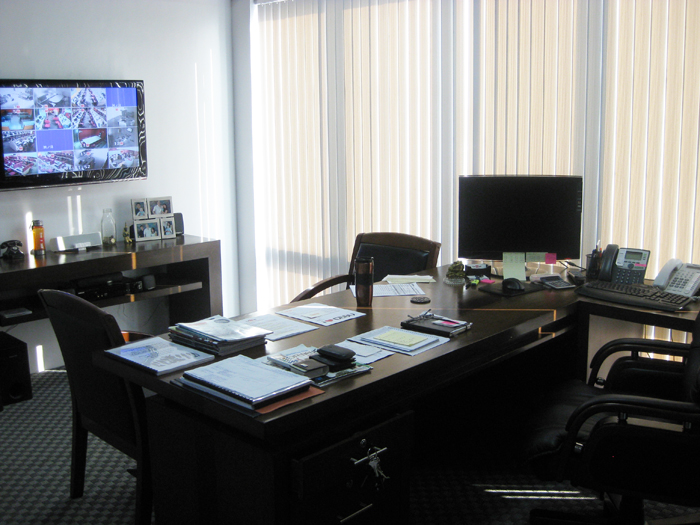Note from Chris: I’m in the process of preparing for back surgery (thanks to all of you who have sent ‘good luck’ messages), so today I’d like to hand over the blog to the very capable and informative friend of mine, Phil Montero from The Anywhere Office. In today’s guest post, Phil (pictured, left) will provide answers to a few frequently asked questions about common pitfalls of a digital workplace. Something that, as new-age entrepreneurs, we must always pay attention.
Over to Phil…
Information Overload
Q: As mobile technology has transformed business and the workplace in the past few years, is information overload now a concern for businesses and their employees?
A: Yes information overload is a concern as we are exposed to much more information than ever before. Email, blogs, podcasts, social media, video, TV, newspapers, and other media can make it hard to keep up. It used to be there was a much smaller pool of information and it was mostly consumed in the workplace – but with today’s mobile tools we can access and consume this information from pretty much anywhere.
It is an advantage but it can also be a challenge to know when and how to turn it off and take a break without getting overwhelmed.
Hardware Convergence
Q: In terms of hardware we use multiple devices including laptops, cell phone, work computer, tablet, etc, and online people increasingly have several email accounts, twitter, facebook and so on – do you see this trend for multiplicity increasing in the years ahead, or would you expect them to converge and simplify – i.e. one piece of hardware to do everything, a unified online persona?
A: I see a form of convergence already taking place today. Many people use a laptop, but also a tablet or smartphone to access the same information when they are mobile. Thanks to cloud computing and the increasing inter-connectivity of software and applications there is already a lot of convergence. For example, I have helped clients move their calendars, mail, and document collaboration to the cloud allowing them to use any device they have to access that information without duplicating documents or messages. It is also becoming more common for a single programs to allow you to interact with Facebook, linkedin, twitter, and other social media sites.
RSS tools (like Google Reader for instance) make it easy to share information you find on any social media service, via email, or to programs like Evernote. I think there will always be multiple services but the hardware, software and services we use will increasingly allow you to combine that information into one central place or interface.
Timezones and Communication
Q: In a global workplace, do you think working evenings and weekends – especially to communicate between different timezones, is simply the reality now?
Yes, I do feel a reality of our more global workplace is workshifting – working from different locations and times. Smart companies will embrace this by allowing their employees greater flexibility in where and when they work. At first you might think having to work on an evening or a weekend means you never get to unplug and are simply working more, but that doesn’t have to be the case. Many companies are embracing what they call ROWE (a Results Only Work Environment), which essentially means your work hours are much more under your control provided the work gets done (your work is measured on deliverables rather than a set number of hours you work). With that type of philosophy, someone who needs to work during the night or on a weekend might not be working during the day so they can spend time with their family or pursue other personal development goals they have.
With the mobile tools and access to information we have today it’s possible to have a greater level or “work life integration”. You might do a bit of work during a vacation but in turn that might be a vacation you couldn’t have taken in the past because of that work. It is a new form of “work life balance” that I think has a greater fit with the way work happens today.
24/7 Contact
Q: How can firms ensure their staff are not put under more pressure from tools that are supposed to make their lives easier?
A: Companies can discuss what are on/off times for employees and respect that time. Just because you can send or reply to an email anytime doesn’t mean you should be expected to. I think setting up acceptable and open communications guidelines (i.e. turnaround time for voicemail/email, what times/days are you expect to be accessible) can go a long way toward knowing when it’s OK to turn off or unplug from your mobile work tools. Granted, there may be certain times during important projects that exceptions need to be made, but it’s important for these guidelines to be setup and respected.
Digital Disruptions
Q: What can individual business people do to sort their communication technology so they are not disturbed by non-essential or untimely interruptions?
One key to managing your communication technology is knowing how to use it. For example, with smartphones there are ways to turn off audible or visible notifications during times when you don’t want to be interrupted by them. On a weekend, or at night, do you really need to be alerted every time a new email arrives in your inbox? Someone else on your team might be working at that time but it doesn’t mean you need that notification right away. Part of your communication guidelines is not only setting up expected turnaround times for different forms of communication but also a priority level. So, for example, you might decide that voice calls are used for priority messages versus email or IM. That allows your team members and employees to “turn off” their email or IM during non-essential times, knowing that if something really important turns up they can still be reached.
The communication guidelines need to be discussed and preferably decided on as a group. They also need to be clear and open so that everyone understands and abides by them.
Chris: This article is seriously important to digest. There’s a lot of great stuff in here. I particularly liked Phil’s points on managing email, which I’ve gone into quite a bit of depth about before and the importance of work/life balance, too.
One thing is for sure, the importance of technology in business isn’t going to start slow down, if anything, we’re going to be more tech-savvy and sexy than ever in the coming years. However, as business owners and entrepreneurs that are wanting to remain (or even just become!) uber successful, its important that we appreciate technology and what it can do for us, but not become bogged down (or even slowed down!) by it. Switch off for a while, peeps. Enjoy the view – wherever you may be.
My thanks to Phil for a great guest post submission, and please feel free to post your own views on the subject, along with any stories, ideas and resources that you feel are relevant to what we’re all trying to achieve in our lives.








